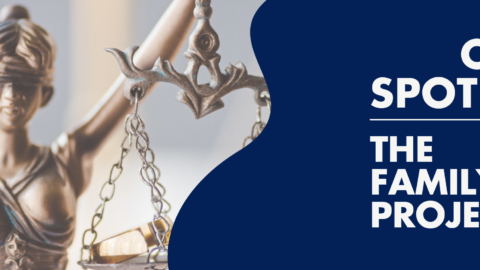Twitter’s Initial Public Offering (“IPO”) has garnered much attention since the company went public in November, and divorcé Stuart Strumwasser has taken a particular interest in its worth. He alleges that his ex-wife, Jennifer Johnson, hid her investment in the company before the two divorced in 2007, and that her investment is now worth between $10 million and $50 million.
According to the New York lawsuit, Johnson ostensibly flew to California to meet with her brother six months before she filed for divorce. Instead, she met with Greg Kidd – her first husband – and “one or more” Twitter founders, to discuss a possible investment in Twitter, which was privately held at the time. Strumwasser, an indie musician living in Brooklyn who launched a national soda brand, claims that he learned about the investment years after the divorce, while he continued to make hefty support payments for the parties’ children on a modest income. He asserts that he is now legally entitled to $120,000 and 30% of her Twitter shares.
Since Strumwasser just filed suit, it remains to be seen how the New York court governing the parties’ divorce will rule. If jurisdiction were in California, home of Twitter’s San Francisco headquarters, Strumwasser might have a compelling case.
Under California law, married couples owe each other a duty of disclosure regarding all assets in which the community may have an interest.[1] This duty continues even after separation, until the governing court, or the parties by court-sanctioned agreement, have divided all the community assets and obligations.[2] The duty of disclosure specifically includes an obligation to disclose investment opportunities, or any income-producing opportunities.[3]
The duty to disclose “any income-producing opportunity” is especially pertinent in San Francisco, given the abundance of tech startups providing investment opportunities. Failure to disclose such investments in a divorce, however insignificant they may seem at startup, can result in serious legal consequences, if a company in which a divorcing party invested later goes public and launches a successful IPO.
If Strumwasser were suing in California, and proved that Johnson negligently failed to disclose her investment, he may be entitled to 50% of the value of Johnson’s undisclosed shares, as of the date of highest value. The date of value would be the highest of (i) the date of the breach of fiduciary duty, (ii) the date of its sale or disposition, or (iii) the date of the court’s award.[4] Also, if he successfully made his case, the court would be required to order Johnson to pay his attorney’s fees.
Fraud is considered a more serious breach than mere negligence, resulting in harsher penalties. Taking the hypothetical further, if Strumwasser showed a California family law court, by clear and convincing evidence, that Johnson fraudulently hid the asset, the court could award him 100% of the value of her undisclosed Twitter shares.[5] The court also would be allowed, but not required, to order Johnson to pay Strumwasser’s attorney’s fees. Perhaps the court has discretion here because an award of the entire undisclosed asset would be punishment enough.
In California, the court can bar breach of fiduciary duty claims not raised within a suitable amount of time: within three years of the date that the aggrieved spouse acquired actual knowledge of the transaction.[6] But even if a spouse files within three years, the suit cannot go forward if the court finds that the party unreasonably delayed in seeking relief, to the detriment of the other party.[7]
So, in the hypothetical California lawsuit, the court could block Strumwasser’s claim if Johnson successfully showed that Strumwasser knew about her plans to invest when she flew to California to meet with Kidd and the Twitter founders, or that that Strumwasser’s delay in raising the claim was unreasonable, and harmed Johnson’s ability to make her case.
Disclaimer: The purpose of this article is to share general information relevant to California law. The article and the information provided herein do not create an attorney-client relationship or any other professional relationship, do not constitute legal advice, and should not be used as a substitute for the counsel and services of a licensed attorney.
About the authors:
 Katie Burke has practiced family law for ten years. She joined Schoenberg Family Law Group, P.C. in 2012, and belongs to the Bar Association of San Francisco’s Family Law Section and the Queen’s Bench Domestic Violence Committee. Katie occasionally writes family law articles for Nolo and Trial Insider.
Katie Burke has practiced family law for ten years. She joined Schoenberg Family Law Group, P.C. in 2012, and belongs to the Bar Association of San Francisco’s Family Law Section and the Queen’s Bench Domestic Violence Committee. Katie occasionally writes family law articles for Nolo and Trial Insider.
 Laura E. Vocke is an associate attorney at Schoenberg Family Law Group, P.C., practicing exclusively family law. She currently serves as co-chair on the Queen’s Bench Domestic Violence Committee and is a member of the 2014 Queen’s Bench Board of Directors.
Laura E. Vocke is an associate attorney at Schoenberg Family Law Group, P.C., practicing exclusively family law. She currently serves as co-chair on the Queen’s Bench Domestic Violence Committee and is a member of the 2014 Queen’s Bench Board of Directors.
She received her Juris Doctorate from the University of San Francisco School of Law, where she received a CALI award for outstanding performance in community property law. She completed her undergraduate degree in literature from University of California, Santa Cruz with highest honors in her major.
Ms. Vocke chose to practice family law because she finds personal satisfaction in assisting her clients through an extremely difficult period of their lives.
[1] Family Code Section 1100(e), California Family Code Section 721
[3] California Family Code Section 2012
[4] California Family Code Section 1101(g), Marriage of Margulis 198 CA4th 1252, 1279 (2011)




0 comments on “Spouse’s Undisclosed Twitter Investment Could Benefit Her Ex Post-IPO”